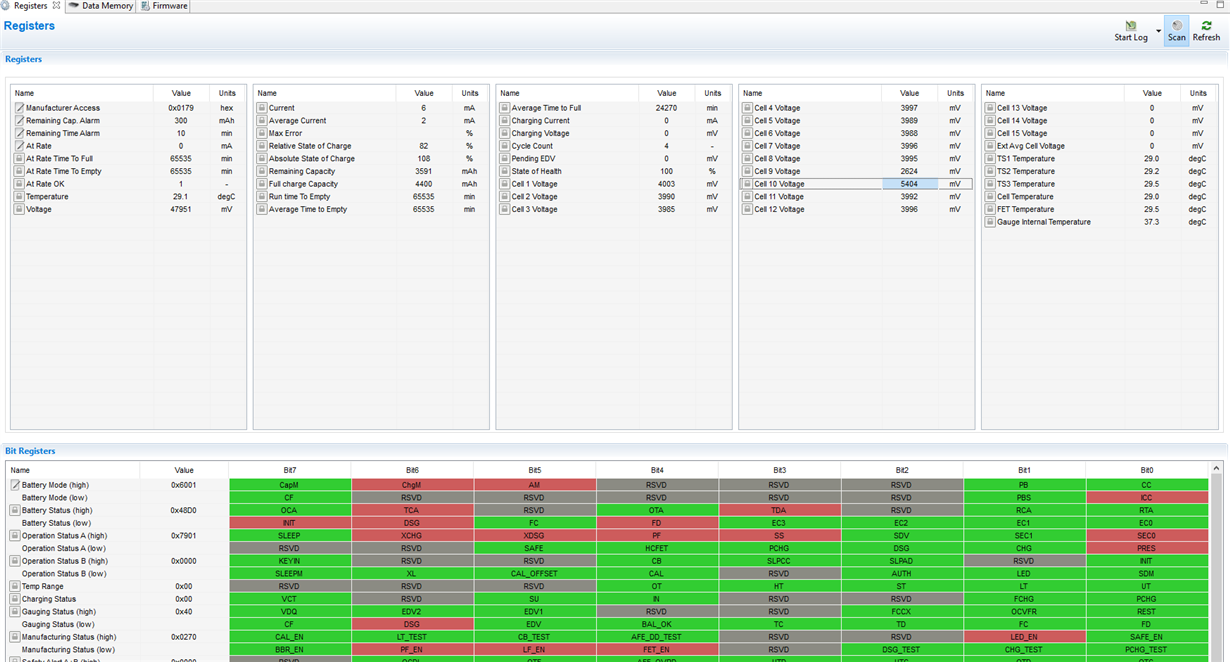Other Parts Discussed in Thread: BQSTUDIO
We have build many BMS's based on the BQ76940 for a 12S pack. Sometimes we observe a behaviour where one cell "discharges" itself into an adjacent cell. We use a "battery emulator", a simple resistor array, to calibrate the BMS, so actually all cells are perfectly balanced.
When measuring before balancing the cells are all at 4V, when measuring at the capacitor between the "faulty" cells we observe the same voltage as reported by bqStudio, however as soon as the multimeter leads touch the capacitor the cell voltage decreases and continues to decrease under the 4V threshold... Basically it seems like it's a faulty cell balancing issue. I've replaced the capacitor between the cells, checked all the components (MOSFET, resistors) all seems fine.
This happens slowly, starting at around 4V and keeps going up, eventually reaching a state where one cell is under-voltage and the other over-voltage and goes into permanent fail mode. See cells 9 and 10:
Has this been observed before? What else can I do short of replacing the balancer chip?


